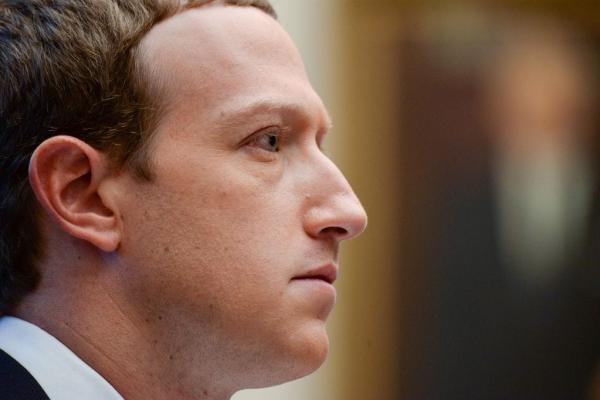By
Columnist
November 7, 2019 at 3:54 p.m. PST
There is now a growing consensus that American democracy needs to be saved by Mark Zuckerberg. People from Sen. Elizabeth Warren to Aaron Sorkin are demanding that Facebook stop running obviously false political advertising. So, let me pose a question: Would everyone be as comfortable if the person deciding what constitutes real news vs. fake news were not Zuckerberg but Rupert Murdoch?
It’s not a fantasy. In 2005, News Corp. bought MySpace, then the leading social network on the planet. Had things worked out differently, it would be Murdoch or a band of Fox News experts who would be determining what counts as legitimate political speech. Still comfortable?
And these fact-checking decisions aren’t as simple as they sound. Let’s take the ad that the Trump campaign ran recently on Facebook that provoked the furious backlash. It made three assertions: During the Obama administration, the U.S. government promised Ukraine $1 billion in aid. Then-Vice President Joe Biden threatened to withhold that aid unless a key Ukrainian anti-corruption official was fired, which he was. Finally, Biden wanted this done because the official was investigating a company associated with his son Hunter.
Now here’s the difficulty. The first two claims are undeniable facts. As for the third, the former Ukrainian official, Viktor Shokin, has filed an affidavit in a European court asserting that he was indeed fired for investigating Hunter Biden’s company. But is it true?
No. Shokin is almost certainly lying because, for him, it’s a better explanation for his dismissal than the more plausible one — that he was widely viewed as corrupt himself. So President Trump’s claim is almost certainly false, but that is my judgment based on my understanding of the facts and context.
Broadcast networks cannot censor political ads because doing so would be considered an infringement of free speech on their large public platforms. Cable companies such as CNN (where I work) are not regulated the same way and thus can make their own decisions. Facebook, of course, is a larger platform than all the networks combined. It now serves as a sort of global public square, and it should be open to political speech.
The criticisms of Facebook are varied, and many of them are valid. It has been far too lax in allowing and even promoting incendiary messages that end up provoking violence, as in countries including Myanmar and Sri Lanka. It also acts as a quasi-monopoly, snuffing out competition, which is a separate matter.
Many argue that Zuckerberg is being disingenuous when he claims that Facebook is a neutral platform, open to all views equally. In fact, Facebook’s algorithm promotes certain kinds of material over others — which can help spread fake news, exaggerations and lies. The algorithm encourages engagement and intensity of belief. That helps, say, stamp collectors and animal lovers get more of the content they crave. It helps Warren’s supporters see material they like. And it helps Trump-leaning voters see the stuff that excites them.
The real issue is that the United States has become deeply polarized, and each side wants to believe the worst slander and lies about the other. And undeniably this phenomenon is far more prevalent on the right than the left. The situation with Facebook is a symptom of this problem. If Facebook didn’t exist, Trump supporters would listen to talk radio, watch Fox News, go to other websites. Facebook accentuates partisanship more than causes it.
Stanford University’s Jeremy Weinstein, who teaches a popular class on “Computers, Ethics and Public Policy,” explains that “it makes very little sense to think that these choices about what speech is allowed and not allowed should be made by unaccountable tech CEOs behind closed doors in a corporate boardroom. Companies are focused on their own bottom-line — which is best catered for if they maximize engagement/attachment to their platforms.”
I don’t want Mark Zuckerberg deciding what speech is legitimate. I want the government to set parameters for him and other technology companies as to their obligations for what they increasingly are: large news platforms. There are many good ideas out there. Invoke something like the “fairness doctrine,” which for decades required broadcast networks to include a range of views in their programs. Ellen L. Weintraub, chair of the Federal Election Commission, has a simple suggestion: Do not allow microtargeting — serving ads to a very specific segment of the population — which stokes division and hostility, and is often cloaked in secrecy.
Americans feel overwhelmed in the digital era by the power of the tech giants. But, Weinstein argues, they distrust government even more than they do the tech companies. They want Facebook to regulate American democracy. We need the opposite. American democracy should regulate Facebook.







